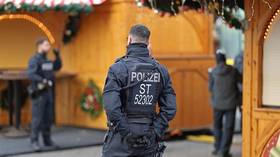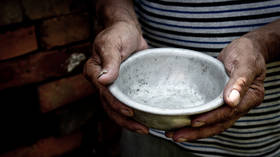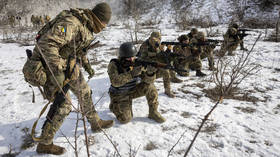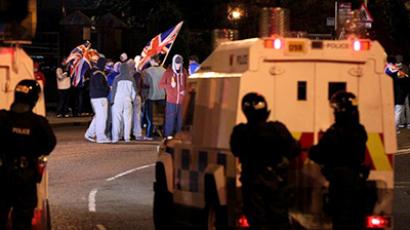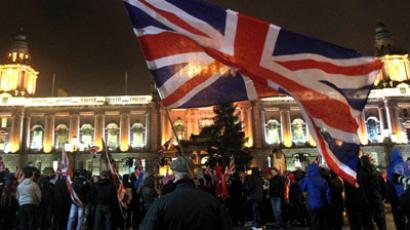Belfast police reinforced on violence fears during Orangefest
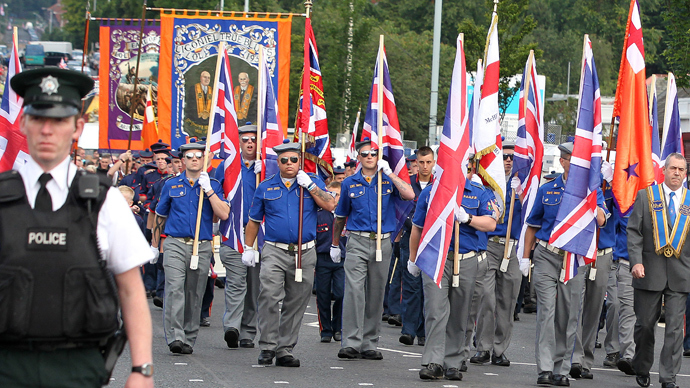
Belfast police have been reinforced by more than 600 officers from other UK branches ahead of the annual Orange Order parade. There are fears of riots breaking out following a ban on the Unionists from marching through a sectarian flashpoint.
Four thousand police officers have been deployed across the
Northern Ireland ahead of the annual Orange Order parade. Tens of
thousands of people are expected to take part in the celebration
of a 17th-century military victory of a Protestant king over his
Catholic counterpart.
The 12th of July is usually fraught with potential clashes
between Unionists - mostly Protestants – who want Northern
Ireland to remain part of the UK and Irish nationalists, or
Republicans – mostly Catholics – who would like to see the region
part of a united Ireland.
Belfast police are particularly on alert this time, as change in
the march's route in the capital city was shortened this year,
angering Unionists.
RT’s correspondent in Belfast Sara Firth reports the situation is
already becoming tense in the Ardoyne neighborhood, with police
allowing only a limited number of people to pass.
A look behind the police line near #Ardoyne shops. Police saying only 100 + a band should be marching this route. pic.twitter.com/PMysEMeZt1
— Sara Firth (@SaraFirth_RT) July 12, 2013
The Parades Commission, the body regulating the annual event
ruled that the Orangemen will not be able to return past the
Irish-nationalist Ardoyne area, where violence has regularly
broken out, including last year.
Earlier, Unionist leaders expressed outrage at the decision,
disavowing the Parades Commission for creating “cultural,
physical and spiritual apartheid.”
“Yes, we are angry. There will be protests over the coming
period, but it is our earnest intention and prayer that those
protests will be peaceful,” the Deputy Grand Master of the
County Orange Lodge of Belfast, Spencer Beattie, said.
Despite the Orange Lodge’s promise to keep protests peaceful,
security concerns remain.
Northern Ireland secretary Theresa Villiers felt obliged to
explain why she could not overturn the controversial ruling by
the Parades Commission.
"The only power I have to intervene and override a Parades
Commission determination is if I receive an application asking me
to do that from the chief constable. He has not sent me such an
application and so I don't in this case have any power over the
decision,” Villiers said as cited by The Guardian.
Last year’s attempts to avoid violence between the two religious
groups by giving participants a timetable and specified route
proved futile. When the march passed through a nationalist
district of the city fighting broke out, with Catholics and
Protestants tossing bottles and stones at each other. The
demonstrators eventually started throwing Molotov cocktails at
police, who responded by firing plastic bullets and water cannons
at the rioters.
Despite recent attempts to rid the 12th of July of political
implications, casting it as a cultural and family-friendly event,
it is still marked by outbreaks of violence.
Belfast has seen three decades of clashes between Protestant
loyalists and Irish nationalists. Although a 1998 peace agreement
led to a power-sharing government between the two groups, the
situation remains volatile.



